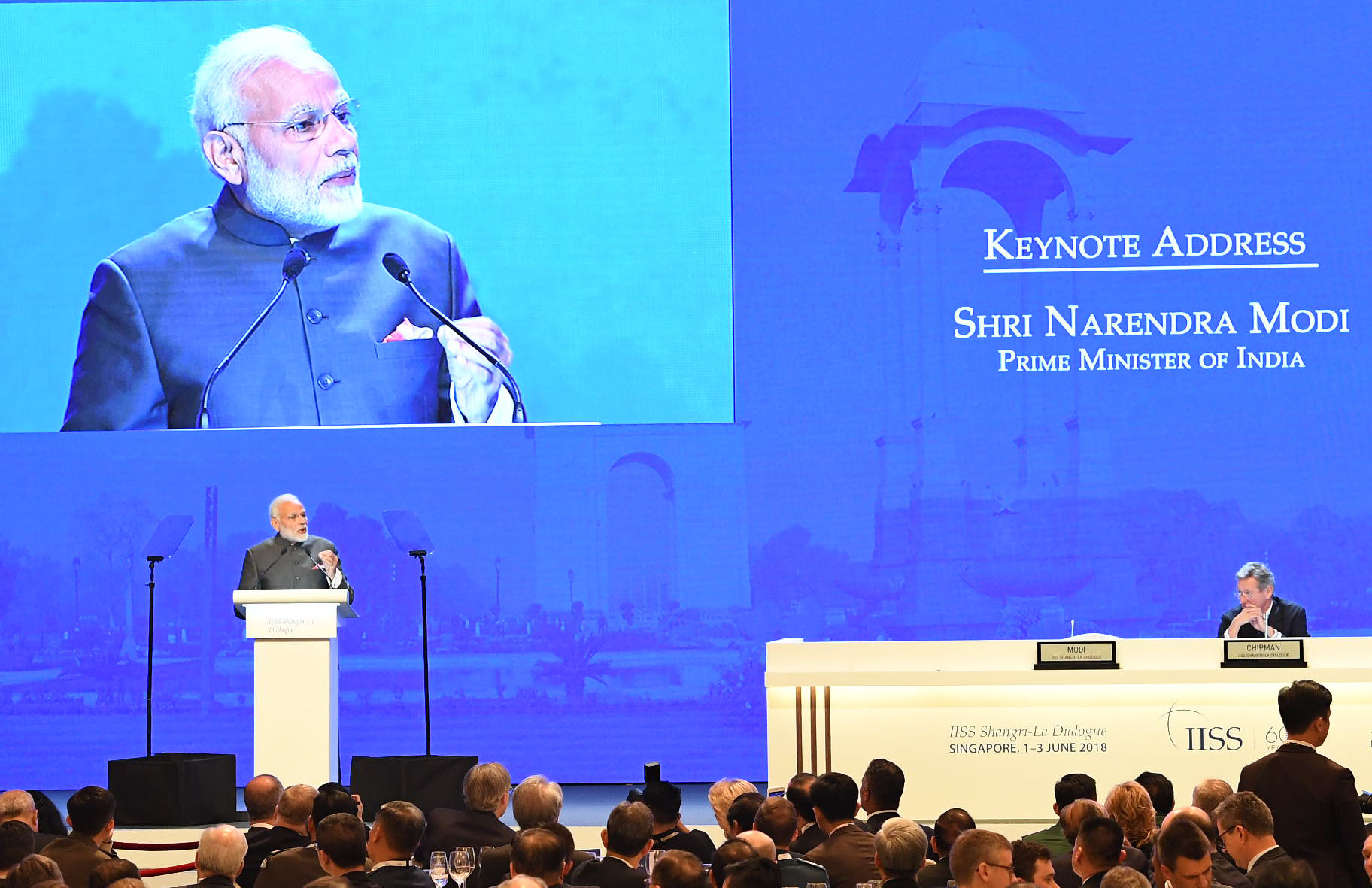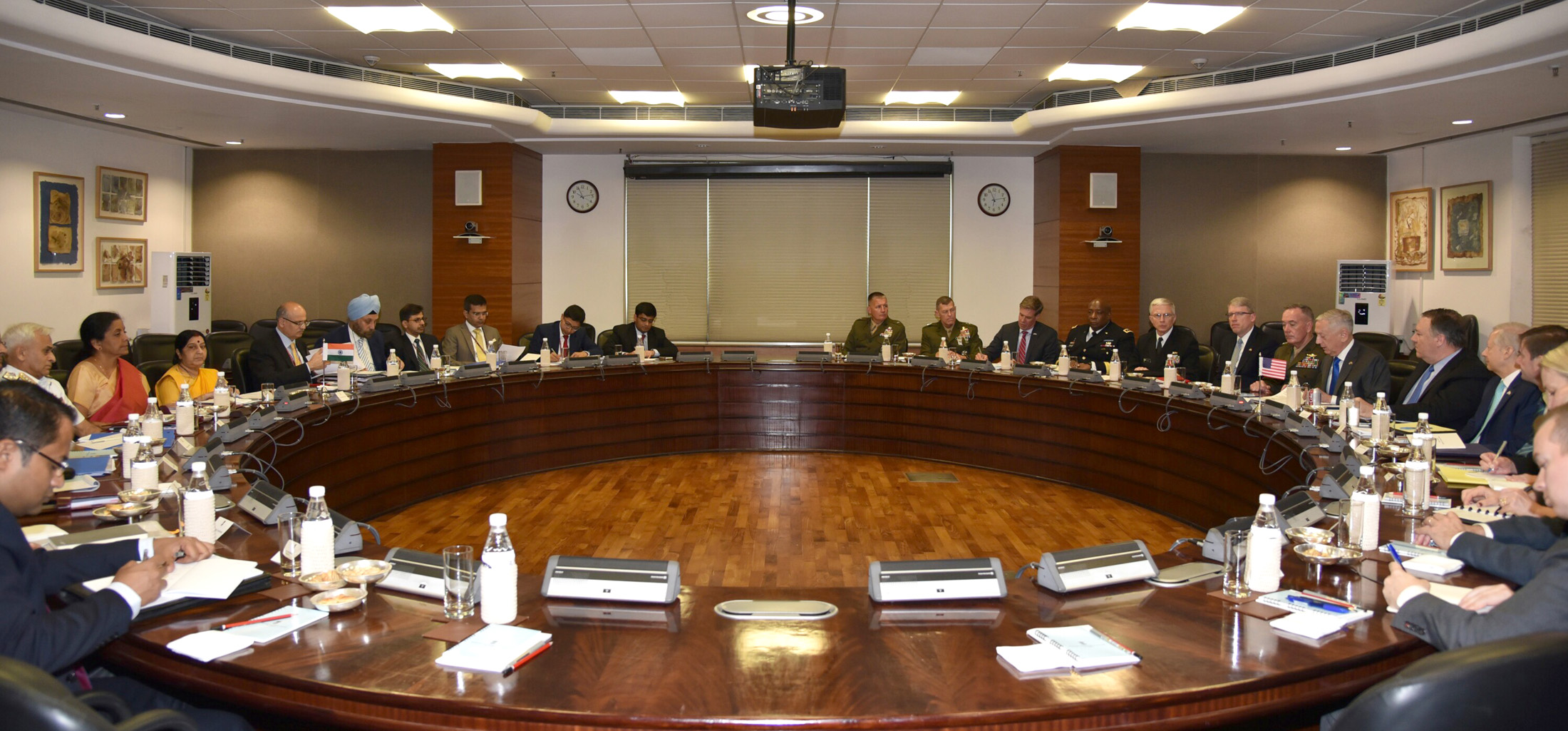The Ministry of External Affairs today said it will follow a rule-based and dialogue driven vision of Indo-Pacific security as defined by Prime Minister Narendra Modi in the Shangri La Dialogue held in Singapore earlier this year.
"Prime Minister enunciated India’s vision for the Indo-Pacific region during his keynote address at the Shangri-La Dialogue in Singapore on June 1, 2018," the Minister of State of External Affairs Gen.(Retd) V K Singh told parliament today.
"The vision stands for a free, open and inclusive region, which embraces all stakeholders in this region and beyond in a common pursuit of progress and prosperity," Singh, a junior minister of external affairs, told Rajya Sabha, the Upper House.
"The vision entails evolving a common rule-based order for promoting common prosperity and security through dialogue. India is engaged with all key partners in the region and beyond to ensure peace, stability and security in the Indo-Pacific Region," the minister added.
The MEA was responding to a question asked by Member of Parliament Sambhaji Chhatrapati who wanted to know whether any progress has been made to develop cooperation with US, Japan and Australia for building security architecture in the Indo-Pacific region.
The ruling party BJP-nominated lawmaker, who is a descendant of Maratha warrior icon Chhatrapati Shivaji, also asked whether any action plan has been drawn to finetune the cooperation between the partners and other countries of Indo-Pacific region to ensure security.
Prime Minister Modi had delivered the keynote address at the Shangri La Dialogue held in Singapore on June 1 this year, articulating India's vision on security and peace in the region.
Countries in the South and South East Asian region are concerned over China's development of uninhabited islands into military bases and China has rejected the Hague court's ruling that calls for desisting from the expansionist activity. The islands not only have become the cause of bitter territorial dispute between China and its neighbouring countries but also has given Chinese navy an oversight on the shipping lanes that pass through the South China Sea – something that has upset the global powers as well.
Soon after the address, India-China Maritime Affairs Dialogue was also held in Beijing, China on July 13, 2018. The two sides exchanged views on various topics of mutual interest, including perspectives on maritime security and cooperation, blue economy, and further strengthening of practical cooperation. The Indian side also elaborated on India’s vision for the Indo-Pacific region as in light of Shangri La Dialogue.
Both sides emphasised the need to further strengthen maritime cooperation as an important area of India-China bilateral relations, and as a platform to strengthen political and strategic mutual trust between the two countries.
In September the defence and external affairs ministers met under the first India-US 2+2 Ministerial Dialogue where the two countries underlined their "partnership in the Indo-Pacific and beyond.
Both sides committed to work together and in concert with other partners toward advancing a free, open, and inclusive Indo-Pacific region, based on recognition of ASEAN centrality and on respect for sovereignty, territorial integrity, rule of law, good governance, free and fair trade, and freedom of navigation and overflight.





